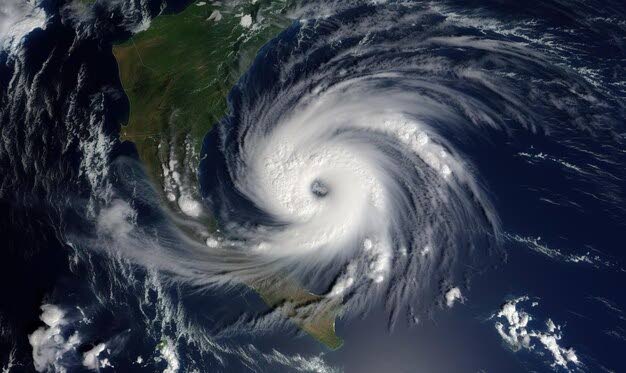Understanding hurricanes

The first warning of a hurricane may come in your daily weather report. It may say, "A tropical depression has formed at latitude nine degrees just north of Guyana, and meteorologists are observing it for possible signs of development."
Remember Trinidad and Tobago lie at ten degrees north of the equator.
Hurricanes form over warm tropical seas. They get their energy from warm air as it evaporates off the sea. Helped by the rotation of the earth, this warm air begins to circulate more and more rapidly. As long as the sea and air conditions remain warm, this system will grow stronger and stronger and keep moving, usually from east to west.
Your next weather report may give an update on the wind speed and location and the direction in which the storm may travel, and where it may make landfall. By this time it would have been named, for example Andrea, Andy or another ‘A’name if it is the first hurricane of the season.
Hurricanes are measured in strength as category 1, 2, 3, 4 or 5. As you can imagine, a category 5 hurricane is quite destructive. In fact, a category 5 hurricane can move anything in its path. It can strip a small, low island of houses, big buildings, trees and cause many deaths. Hurricanes are strongest over warm water, so islands and coastal towns are in more danger of high winds and waves and flooding.

There is no way to stop a hurricane. However, because of weather satellites, people can be warned by meteorologists to take precautions.
Hurricanes are also called tropical storms, cyclones or typhoons, depending on where in the tropics they are located.
Some easy questions for you:
Can you name two category 5 hurricanes to have hit islands in the Caribbean?
If a hurricane forms off Guyana and travels north east, where might it hit next?
Can a hurricane be stopped?
What precautions can people take in case of a hurricane?
What happens when a hurricane makes landfall?

Comments
"Understanding hurricanes"